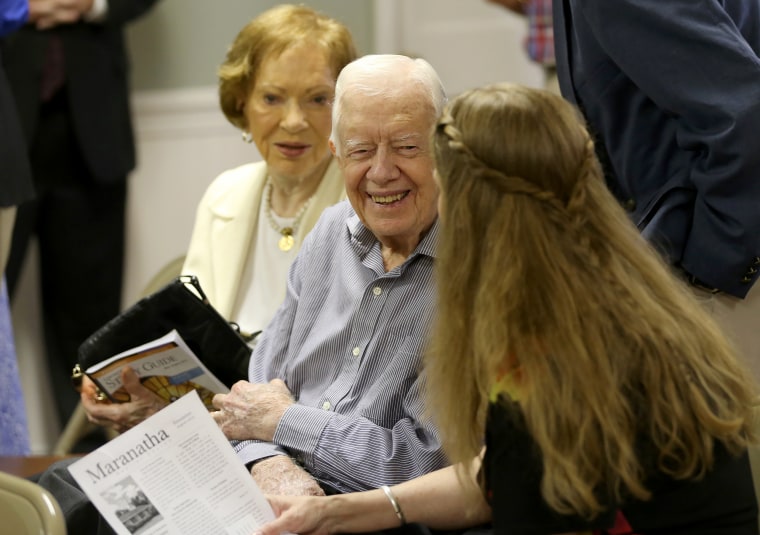Former President Jimmy Carter's cancer diagnosis, at age 90, is spotlighting how doctors treat cancer in the elderly.
Carter hasn't revealed what type of cancer he has, although his father, brother and two sisters died after battles with pancreatic cancer.
The former president has gotten on with his life, attending church in Plains, Georgia, as usual Sunday morning, his niece Kim Fuller told NBC News.
"He looked really good," said Fuller, who said Carter is set to teach Sunday school next weekend. "He's just like every other church member."
Twenty-eight percent of new cancer cases are diagnosed in people over 75, according to the American Cancer Society — an estimated 465,000 new cases this year alone.
At the same time, the number of elderly people who survive cancer will increase by 40 percent over the next decade.
"Older patients should not be written off cancer treatments just because of their age," said Dr. Lodovico Balducci, who specializes in treating cancer in the elderly.
The Moffitt Cancer Center in Tampa, where Balducci works, uses a scoring system to determine how older patients might deal with the possible side effects from treatments like chemotherapy.
Related: Former President Jimmy Carter Has Advanced Cancer
"There is hope," Balducci said, "provided that we provide the right treatment with the right patient. As we say: personalized treatment."

Others echoed the importance of a deeply individualized care management plan.
"It's not the calendar. It's not the years they've lived," said Dr. Len Lichtenfeld, deputy chief medical officer at the American Cancer Society. "It's the quality of life they have, their physical status and what they choose to do for the remaining years of their life."
He added, "Whenever you consider someone of President Carter's age, it's always a balancing act, and there are always many factors to consider as you decide what the best thing is for that particular patient."
In his new book, "A Full Life: Reflections at Ninety," published in July, Carter wrote: "There was no record of another American family having lost four members to this disease, and since that time I have had regular X-rays, CAT scans, or blood analyses, with hope of early detection if I develop the same symptoms."
